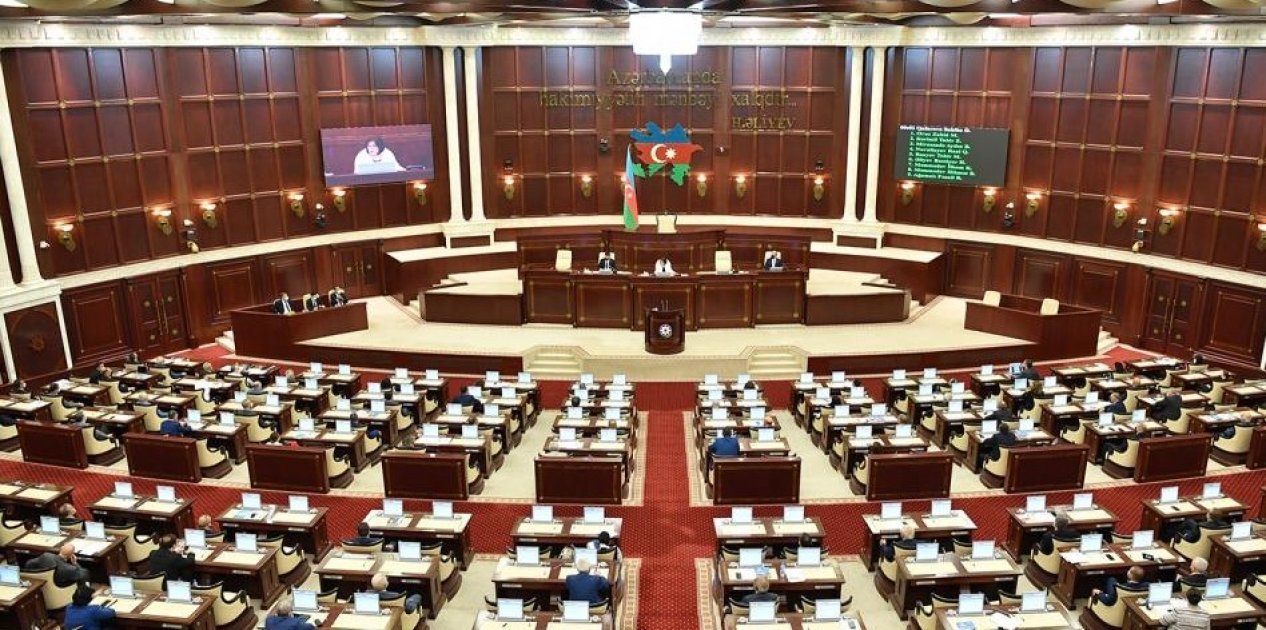
As part of the extraordinary session of the Azerbaijani Parliament on August 3, 2021, during the discussion of the immunity status of MP Eldaniz Salimov, it was stated that an MP is not considered an official. Commenting on this opinion, First Deputy Speaker of the parliament Ali Huseynli said that an MP is considered an official and subject to law.
Azerbaijani Parliament unanimously revoked MP Eldaniz Salimov’s parliamentary immunity for physical violence against police.
On the night of July 29, MP Salimov beat a police officer who urged him to comply with norms of the quarantine regime. Salimov applied physical violence against the police officer, who had demanded from the MP to follow the coronavirus-related quarantine rules.
Therefore, opening of a criminal case by the Prosecutor General’s Office for abuse of powers should not give ground to disputes.

Saxta.info has investigated whether Ali Huseynli’s statement is well-founded.
To clarify the issue, it should be noted that a criminal case was launched against Eldaniz Salimov under Article 309.2 (abusing official powers) of the Criminal Code of the Republic of Azerbaijan after the abolition of his parliamentary immunity.
When it comes whether an MP is an official or not, let’s look at the concept of ‘official’ to find the answer to this question.
This is reflected in the ‘Note’ part of Article 308 (abuse of power) of the Criminal Code.
Thus, the term ‘official’ refers to:
- government officials, including persons elected or appointed to state bodies in accordance with the Constitution and laws of the Republic of Azerbaijan, or representing state or local self-government bodies on the basis of special authority, military servicemen, civil servants who are officers, ensigns or midshipmen, members of municipalities and municipal workers;
- persons whose candidacy for elected positions in state bodies has been registered in accordance with the procedure established by law;
- heads and employees of state and municipal organizations, including public legal entities, as well as commercial and non-commercial organizations;
- persons performing organizational-administrative or administrative-economic functions under special authority in state and municipal enterprises, departments and organizations, as well as in public legal entities, as well as in commercial and non-commercial organizations;
- persons engaged in entrepreneurial activity without establishing a legal entity;
- officials of state bodies of foreign countries, members of selected state bodies of foreign countries, officials and other employees of international organizations, members of international parliamentary assemblies;
- judges and other officials of international courts, local, foreign and international arbitrators, foreign or local jurors acting in accordance with the laws of the Republic of Azerbaijan or foreign countries, as well as international treaties to which the Republic of Azerbaijan is a party.

By the way, the Prosecutor General’s Office of the Republic of Azerbaijan addressed a request to the Constitutional Court on the grounds that the definition of ‘official’ in Article 308 “Note” is not unambiguously used in the investigation and judicial practice. The inquiry demanded for an explanation of the term "official". According to the inquiry, the Constitutional Court of the Republic of Azerbaijan issued a decision on July 19, 2013, explaining the concept of "official". According to that decision, the concept of “official” refers to:
- civil servants, members of municipalities and municipal workers, officers, ensigns or midshipmen who have the authority to dispose of subordinates or non-subordinates in the manner prescribed by law or to make decisions that are binding on legal entities and individuals are considered officials;
- employees of state and municipal enterprises, departments and organizations, as well as other commercial and non-commercial organizations, persons engaged in entrepreneurial activities without establishing a legal entity, are considered to be officials when they perform actions that result in or may result in legal consequences for other persons.

The Constitutional Court also clarified the definition of "government officials" reflected in the "Note" part of Article 308. The statement reads:
Representatives of the authorities are those who exercise legislative, executive and judicial power, as well as those who have the authority to dispose of their subordinates or non-subordinates in the manner prescribed by law, or to make decisions that are binding on legal entities as well as individuals.
Such functions are performed by deputies, members of the government, judges of courts, law enforcement bodies, fire, epidemic and other security agencies (police, security service, customs service, state forest control, etc.) employees, heads of ministries and other central executive bodies, municipalities, their deputies, heads of structural units and others.
From the explanation of the Constitutional Court, it can be concluded that a deputy is considered an official because he or she belongs to the category of "government representatives."
In addition, MPs are the subject of laws on the Constitution of the Republic of Azerbaijan "On the status of MP", as well as “On the approval of the Internal Regulations of the Azerbaijani Parliament.”




















